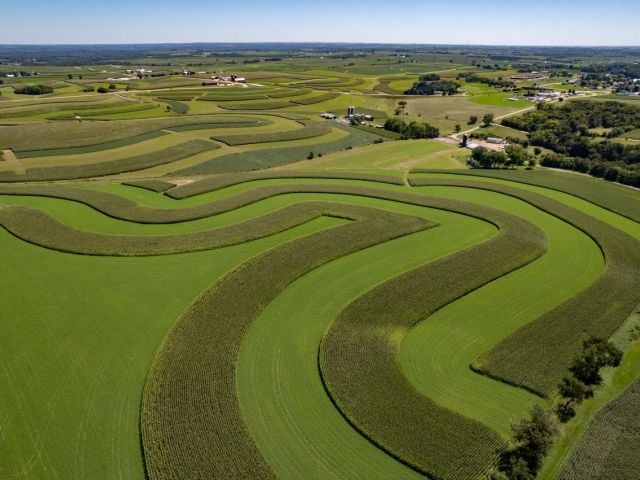WASHINGTON – The Environmental Working Group today applauds House and Senate leaders for including $27 billion in the budget reconciliation bill, to tackle a growing backlog of farmers who need help addressing the climate emergency.
“This is the biggest investment in agricultural conservation programs since the Dust Bowl,” said Scott Faber, EWG’s senior vice president for government affairs. “But though the funding provided by this bill is historic, the exclusive focus on practices like cover crops is equally if not more historic.”
The $27 billion included in the Build Back Better reconciliation bill provides funding through the Department of Agriculture’s Environmental Quality Incentives Program, or EQIP; Conservation Stewardship Program, or CSP; and the Regional Cooperative Conservation Program, or RCCP.
The new spending would help farmers reduce greenhouse gas emissions, largely through proposals included in the Climate Stewardship Act, introduced earlier this year by Sen. Cory Booker (D-N.J.) and Rep. Abigail Spanberger (D-Va.).
“The Build Back Better Act provides a once-in-a-generation chance to make better farmland stewardship – not unlimited subsidies – our top priority,” Faber said. “Farmland conservation practices that reduce greenhouse gas emissions also have the benefit of reducing the amount of farm pollution that is fouling our drinking water.”
By every measure, the problems posed by farm pollution – like toxic algae blooms, high nitrate levels in drinking water and low-oxygen so-called dead zones – are getting worse. The nutrients and chemicals applied to farmland continue to wash into the nation’s rivers, lakes and bays, the main sources of drinking water for millions of Americans.
Congress made important reforms in the 2018 Farm Bill, but spending on USDA conservation programs did not increase enough to meet farmer demand. Farmers and ranchers offering to share the cost of conservation practices like buffer strips and cover crops continue to be turned away from the federal funding they need.
According to its own recent data, the USDA:
- This year turned away 87,163 farmers with valid applications for conservation funding through EQIP.
- This year turned away 20,641 farmers with valid applications for conservation funding through CSP.
- In the past two years turned away more than 100 proposals offered through RCPP.
“Increasing conservation spending will reduce the backlog of farmers waiting for conservation assistance to reduce greenhouse gas emissions,” Faber said.
“It will also help protect our drinking water supplies, lead to more carbon being stored in the ground and help our farms prepare to better withstand the effects of extreme weather caused by the climate crisis,” he added.
EWG’s extensive analysis of conservation spending shows the government isn’t doing enough to ensure that participating farmers adopt “the right practices in the right places.” Conservation funds are frequently used for on-farm infrastructure improvement projects and practices that mostly benefit farmers, not the American taxpayer or the environment.
“The fact that this proposal will exclusively fund practices that reduce emissions is a turning point in the 80-year history of USDA conservation programs,” Faber said.
###
The Environmental Working Group is a nonprofit, non-partisan organization that empowers people to live healthier lives in a healthier environment. Through research, advocacy and unique education tools, EWG drives consumer choice and civic action. Visit www.ewg.org for more information.



